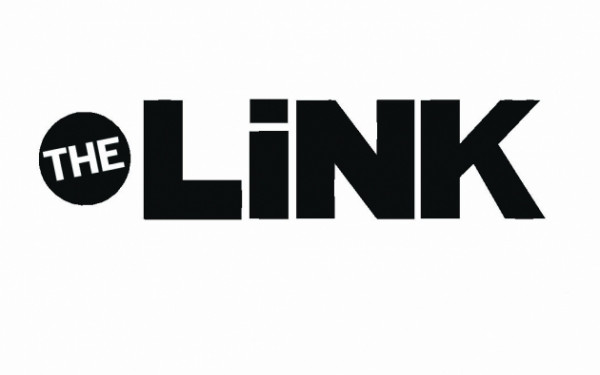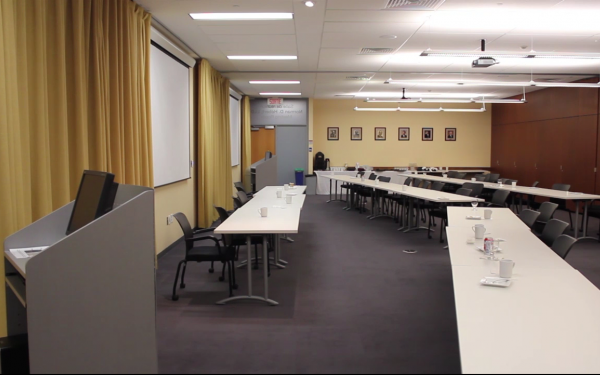Whoa, We’re Halfway There
Mid-Mandate Report Light on CSU Criticism
The school year is only halfway through, but the Concordia Student Union executive have still taken part in the tradition of taking stock at the beginning of a new year, releasing their mid-mandate report to Council at a meeting on Dec. 14.
The document points to what CSU President Lex Gill and her fellow executives felt were notable accomplishments, but Gill acknowledged that it is short on potential failings, as well as in-depth analysis of what had been done in the previous months.
“It was tricky writing this document, because it was prepared for Council as a sort of ‘here’s where were at’ document. The level of detail we wanted to include isn’t there. […] What I would have liked to see was more reflection and criticism from ourselves.”
Gill said the various goals and analyses in the document were compiled by comparing the executives’ activities with campaign promises still listed on the Your Concordia slate’s website. When asked about what external oversight the authors of the report had, Gill pointed to the various committees that councillors sit on.
“I think if we were reporting things in this document that weren’t true or accurate to the work we’re doing, then the External and Campaigns Committee would call us out.
“This month, we’ll be speaking to Council about places where we need to improve.”
One of those places may be in strategies to represent students at the upper levels of school governance.
She admitted that the biggest weakness of this year’s student government was not forming a more aggressive strategy when faced with a reduced student presence on the Board of Governors, due to proposed reforms set to go in place on July 1, 2012.
The reforms include shrinking the board from 40 voting members to 25, and will see undergrads go from four voting members to one voting member, and one non-voting member.
“Looking back, I think that direct action would have been more appropriate as a tactic. While we were trying to negotiate and reason with people, at some point, people were not going to listen.
“We should have been holding sit-ins or occupying that boardroom because in the end, if the results weren’t going to change, [we could have] at least built a movement out of it.”
Gill contrasted that failure with what she considered the year’s biggest success thus far—mobilizing students.
“How do we create a renaissance in real student organizing and real student life on campus? How do we bring that to the ordinary student?
“How do we bring real, political issues to the ordinary student? I think that’s been a really critical success,” said Gill, pointing to the results of a November bylaw question regarding tuition increases, which saw students overwhelmingly voice their disapproval.
Independent student Councillor Nadine Atallah agreed that the mobilization of students, particularly on the Nov. 10 Day of Action, was impressive but wished that the credit in the report had been spread around.
“I’m tremendously proud of the results that we got on Nov. 10 [but] I thought it lacked the extensive human reasons that went into all this mobilization. There were so many students who were working for months and weeks to get the students out, and I don’t think it talked enough about the work that was done before Nov. 10.”
In addition, Atallah pointed to the lack of attendance at the CSU Speaker Series as a failing that was not given proper mention in the mid-mandate report.
When journalist and historian Gwynne Dwyer spoke on Dec. 5, attendance in the 600-person capacity H-110 was limited to a few dozen students. Gill attributed the small crowd to VP External Chad Walcott being overloaded with Nov. 10.
“I’m really impressed by the fact that Chad stood up [at a Council meeting on Dec. 14] and he totally took responsibility for it. He said ‘It’s not because of the quality of the speakers, it’s because I didn’t put my heart into it and I was too busy with Nov. 10, and just burnt out afterwards.’”
Among the other accomplishments that Gill pointed to was the passing of Special Bylaw I during that byelection. The bylaw clarifies the process by which the CSU can give consent for the school to raise fees known as frais institutionnels obligatoires. These fees can currently only be raised by $25 each year.
However, until November, the school was able to raise the fees beyond that with consent from the CSU, though what that meant was not defined in the bylaws. The passing of Special Bylaw I stipulates that undergrad students must vote on a proposed raise in a referendum.
“It’s basically a backdoor tuition fee increase,” said Gill. “We felt it was really important we define what consent meant […] It means it’s not impossible that students could say, ‘We do want to fund student services more than our tuition already does.’ But they need to make an informed choice.”

web_400_288_90.jpg)
_900_677_90.jpg)
_900_600_90.jpg)
_900_598_90.jpg)


_600_375_90_s_c1.jpg)

_600_375_90_s_c1.jpg)
